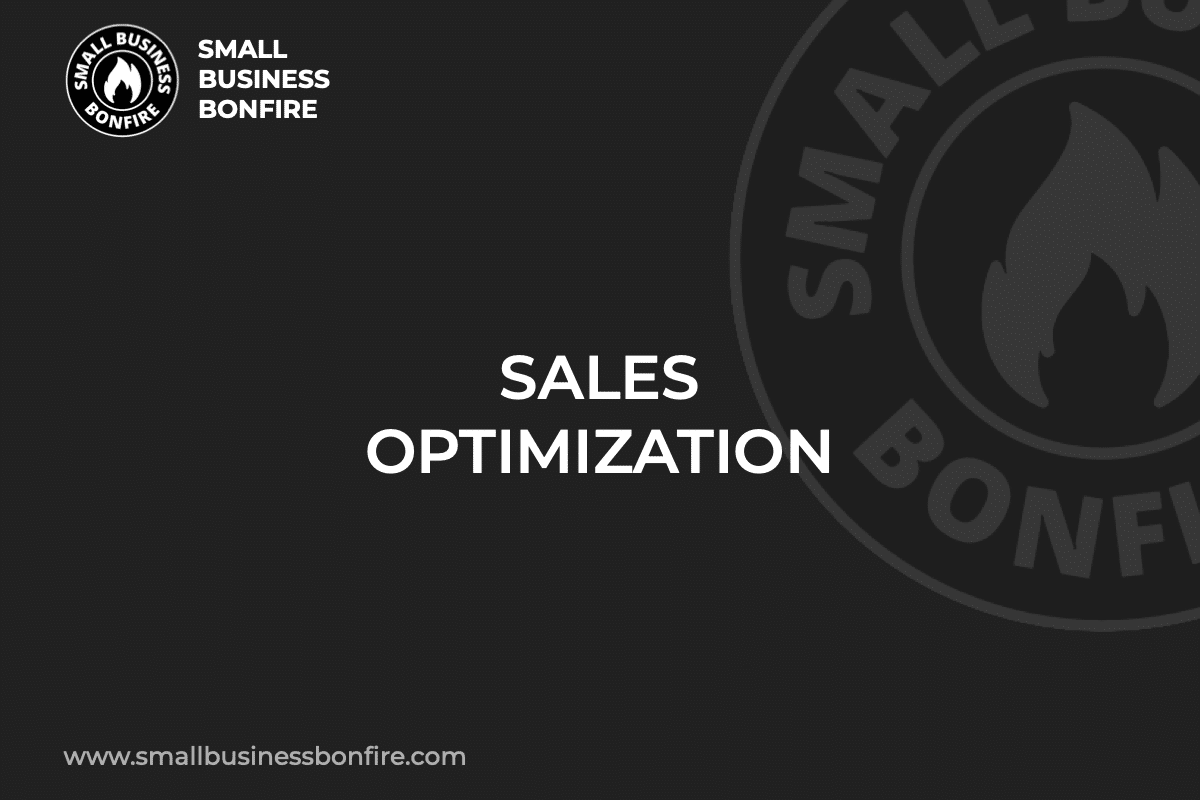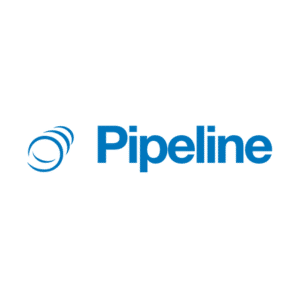Is your company’s sales process struggling? You want to improve, but you don’t even know where to start!
If this sounds like you, don’t worry! You’re in the right place to learn how to optimize sales and get ahead of your competition.
Hi, my name is AJ! After selling my company for multiple seven figures, I made it my mission to help other entrepreneurs earn more revenue!
During the first six months of running my business, I noticed our sales process wasn’t efficient! However, when I learned about sales process optimization, we were able to earn more revenue!
If you want to learn to do the same, keep reading! I’m teaching you about building a sales optimization strategy and much more!
Key Takeaways
- Sales optimization is using technology to improve a company's sales performance.
- Optimizing sales processes relies on data and previous customer behaviors.
- Sales process optimization improves operational efficiencies and streamlines operations.
- One sales process optimization strategy is setting short AND long-term goals to motivate reps.
Related Reading: Best CRM for Small Businesses
SBB Featured Partners
What is Sales Optimization?
Before I explain why sales process optimization is crucial for businesses, it’s essential to understand the definition of sales optimization.
Sales optimization is when companies use advanced technology to maximize sales performance and boost conversions!
How do companies get their sales process to perform better?
Studying and analyzing aspects like customer interactions with your brand and historical data allows you and your sales team to understand your target audience better.
As a result, sales reps can improve their techniques to cater to this audience more effectively.
Still, at the end of the day, sales optimization is when businesses utilize technology, like sales software, to improve sales performance!
In the following section, I’ll reveal why sales process optimization is more beneficial than most business owners realize!
Why is Sales Optimization Important?
Sales optimization plays a pivotal role in the development and growth of small businesses.
For instance, some reasons optimizing sales processes is crucial include the following:
- Increases operational efficiency
- Allows businesses to adopt a customer-centric approach
- Ensures sales teams make data-driven decisions
- Gives small businesses a competitive edge
Let’s look at each of the benefits closer!
Operational Efficiency
With sales optimization, small businesses can streamline their sales process.
Making the sales pipeline more efficient ensures companies only spend money on the leads who are likelier to convert.
Additionally, a streamlined sales process means potential buyers are only stuck in the pipeline for a short time.
Why is it critical to move prospects through the sales pipeline as quickly as possible?
When sales reps spend considerable time on a single prospect, it takes their time away from other potential buyers.
As a result, this single prospect becomes extremely expensive to sell to, taking money out of your profits!
Operational efficiency also means companies can enjoy the following things:
- Eliminating time-consuming tasks
- Focusing more on closing deals
- Higher earnings per sale
Customer-Centric Approach
Optimizing the sales cycle also enables businesses to understand their customer’s needs and wants better.
Understanding your target audience is crucial for several reasons.
Still, the most prevalent reason is that knowing your potential buyers allows your sales team to adjust their sales tactics for improved customer experiences and relationships!
As a result, you can enjoy more loyal customers (who are less expensive to sell to!).
Data-Driven Decisions
When you collect and analyze sales data, it ensures your sales reps have data to base their decisions on.
Without this in-depth information, your sales and marketing teams are left guessing what the next best move is!
Why risk it?
Instead of relying on guesswork, rely on sales data to make business decisions.
Competitive Advantage
Lastly, sales process optimization can give you and your team a competitive edge over companies in the same industry.
In an increasingly competitive market, sales optimization can give small businesses an edge by maximizing their sales efforts and ultimately leading to increased revenue!
Also, optimization ensures your sales strategy is efficient and is free of bottlenecks and unnecessary actions.
Therefore, your company runs smoothly because you understand how to optimize sales!
Sales Optimization Strategies
Now that you understand why sales professionals focus on optimization, you’re probably curious about how to do it!
Below, I’ve listed some awesome strategies that can improve your sales pipeline and benefit your entire company!
Although you and your sales team may only use some of these strategies, it’s nice to have several to pick and choose from.
So, without any further wait, let’s look at these strategies!
Analyze Your Entire Sales Process
Analyzing your entire sales process requires thoroughly examining each step, from initial lead generation to closing the sale.
What metrics should sales teams analyze? Start with the following things:
- Response time
- Conversion rates
- Deal sizes
One tool that’s integral in analyzing your sales process is a CRM system.
Utilize CRM software to collect and analyze your sales data, providing a visual representation of your sales pipeline and revealing potential bottlenecks or inefficiencies.
Further, this analysis is crucial because it highlights areas of improvement.
As a result, it enables you to make informed decisions to enhance your sales performance.
Ultimately, understanding and refining your sales cycle leads to the following things:
- More efficient conversions
- Increased customer satisfaction
- Higher revenue
Establish Short & Long Term Sales Goals
Setting short and long-term sales goals is vital for a business’s success.
Unfortunately, many small business owners don’t see the value in setting goals!
However, short-term goals allow businesses to focus on immediate milestones and ensure the sales team is productive and efficient.
Also, short-term goals provide immediate feedback, making it easier to adjust strategies if needed.
On the other hand, long-term goals help businesses keep sight of their overall strategic objectives and guide the direction for growth and expansion.
Although many teams won’t review long-term goals daily, they’re still essential to have and revisit occasionally!
Lastly, having both short and long-term goals ensures that every sales activity contributes towards the overarching company objectives!
Create Detailed Customer Personas
Customer personas are detailed representations of your ideal customer.
These profiles are designed to help teams understand potential buyers more deeply.
Typically, companies create these personas by gathering data about their existing customers through the following strategies:
- Surveys
- Interviews
- Market research
Companies then use this information to create fictional yet representative profiles that embody different audience segments.
Lastly, each persona includes the following things:
- Demographic details
- Behavioral traits
- Interests
- Values
Track Sales Data Over Time
Tracking sales data over time is fundamental to a sales optimization process.
Data provides valuable insights into your sales performance and customer behaviors, allowing you to identify trends, patterns, and potential areas for improvement!
Also, consistently monitoring this data ensures your sales strategies are practical and meet short-term and long-term goals.
Lastly, data empowers you to make proactive, data-driven decisions that enhance your sales pipeline!
Look For Opportunities in Your Sales Pipeline
Examining your sales pipeline provides a wealth of opportunities for optimization.
But where should you start??
Start by identifying any stages where leads tend to drop off.
Drop-off areas indicate areas that could benefit from changes that (hopefully) improve things.
Next, analyze the duration of each stage in the sales process.
When you notice prolonged stages, it might suggest inefficiencies slowing the sales funnel.
In addition, it’s helpful to take the following actions:
- Conduct regular pipeline reviews to monitor progress
- Identify potential bottlenecks
- Strategize ways to accelerate leads through the pipeline more effectively
Align Sales and Marketing Teams
Aligning your sales and marketing teams is crucial for successful sales optimization!
When both teams work together, they can effectively share insights and data, leading to a more comprehensive understanding of your customer base.
Also, this alignment can foster consistency across all customer touchpoints, ensuring messaging and branding are uniform.
Further, when these departments collaborate, they can better develop strategies that push leads through the sales funnel more efficiently.
Ultimately, having your sales and marketing departments on the same page can significantly improve the following metrics:
- Lead generation
- Customer retention
- Revenue growth
Asign Sales Territories
Assigning sales territories promotes a balanced workload among sales representatives.
As a result, it prevents sales rep burnout and fosters a competitive yet cooperative environment.
Also, this strategy ensures potential markets are not overlooked and every geographic area receives the necessary attention and resources.
Put simply, well-defined territories can lead to improved customer relations, increased sales efficiency, and optimized revenue generation!
Setup Lead Nurturing
As you’re optimizing your sales process, lead nurturing is a crucial step!
Lead nurturing is where potential clients develop into qualified leads through strategic marketing and sales efforts.
Nurturing leads is all about building relationships with individuals who are not yet ready to buy and providing them with relevant information at each stage of their buyer journey.
It’s essential to do the following things to do this effectively:
- Utilize a CRM system to track leads’ behavior
- Follow up with prospects regularly
- Provide personalized content based on each prospect’s needs and interests
The goal of lead nurturing is to convert potential leads into loyal customers!
Monitor and Provide Sales Team Feedback
Monitoring and providing feedback to your sales managers and team is essential to maintain high performance and ensure consistent growth.
Regular feedback helps identify individual strengths and areas of improvement, allowing for personalized training and development.
On top of that, it fosters an environment of open communication and transparency!
If you want to up your sales game, consistent monitoring and feedback are a must because they enhance sales efficiency and improve team morale.
Try Different Marketing Strategies
Exploring various marketing strategies is instrumental because it allows businesses to understand which tactics resonate best with their target audience.
Also, diversifying marketing efforts can help a marketing team reach different customer segments and maximize market penetration.
Further, it fosters continuous learning and adaptation, helping businesses stay relevant in the ever-changing market landscape.
Lastly, applying different marketing strategies mitigates the risk of over-reliance on a single process, ensuring sustained growth and resilience in the face of market fluctuations.
Use a CRM
A Customer Relationship Management (CRM) system is a technology that manages all your company’s relationships and interactions with potential and existing customers.
This powerful tool can do the following things:
- Centralize customer information
- Record service interactions
- Manage marketing campaigns
- Use automation tools to save the team’s time
By implementing a CRM system, sales teams can effectively track leads, manage customer communications, and analyze sales patterns in real time!
Therefore, a CRM system is vital for enhancing customer service and boosting sales productivity!
Motivate and Empower Sales Reps
Motivating your sales reps is essential because it directly influences their performance, productivity, and overall job satisfaction.
Also, an empowered and motivated sales department will likely excel in customer relationship building, boosting your company’s revenue and growth!
Automate Sales Processes
Automating sales processes can significantly streamline workflow, reduce manual tasks, and allow your sales agents to focus more on building relationships and closing deals.
On top of that, automation tools can provide valuable data insights, facilitating more strategic decision-making.
As a result, it’s easier to optimize sales performance!
Identify a Need for a Sales Coach
A decline in sales performance despite consistent efforts or a sales team needing help to adapt to new sales strategies and technologies could indicate the need for a sales coach.
Also, if there’s a significant skill gap among your sales agents or if the team lacks motivation and struggles with low morale, these are signs that a sales coach could be beneficial!
Sales Optimization Examples
Here are two examples of optimizing a sales process!
Example 1: Acme Inc.
Acme Inc., a small tech startup, was experiencing stagnant sales despite having a competitive product.
The company implemented a CRM system to centralize customer information and streamline sales processes.
After implementing CRM, it allowed Acme to do the following things:
- Track leads effectively
- Manage customer interactions
- Analyze sales patterns in real-time
Additionally, Acme integrated their marketing and sales departments, leading to coordinated strategies that led to more efficient lead conversion!
Example 2: Beta Corp.
Beta Corp., a small-to-medium-sized business in the manufacturing industry, needed help with workload balance among their sales representatives.
Therefore, the company introduced a system for assigning sales territories, ensuring that each geographic area received the necessary attention and the workload among reps was evenly distributed.
Also, the company implemented regular pipeline reviews to monitor progress and identify potential bottlenecks, alongside a strong lead nurturing strategy to develop potential clients into qualified leads.
Final Thoughts on Sales Optimization
As you’ve seen throughout this article, sales process optimization is a must-have for your business!
When you use technology to analyze sales data, your team can create targeted strategies for your audience.
Also, optimization allows your business to function efficiently while creating a customer-centric approach.
Which strategies will your team use to create a winning sales optimization toolset? Let us know in the comments section below!
And last but not least, good luck improving your sales cycle! I know you can do it!
Newsletter Signup
Join The Leads Field Guide Newsletter for tips, strategies and (free) resources for growing your leads, and closing more deals.




